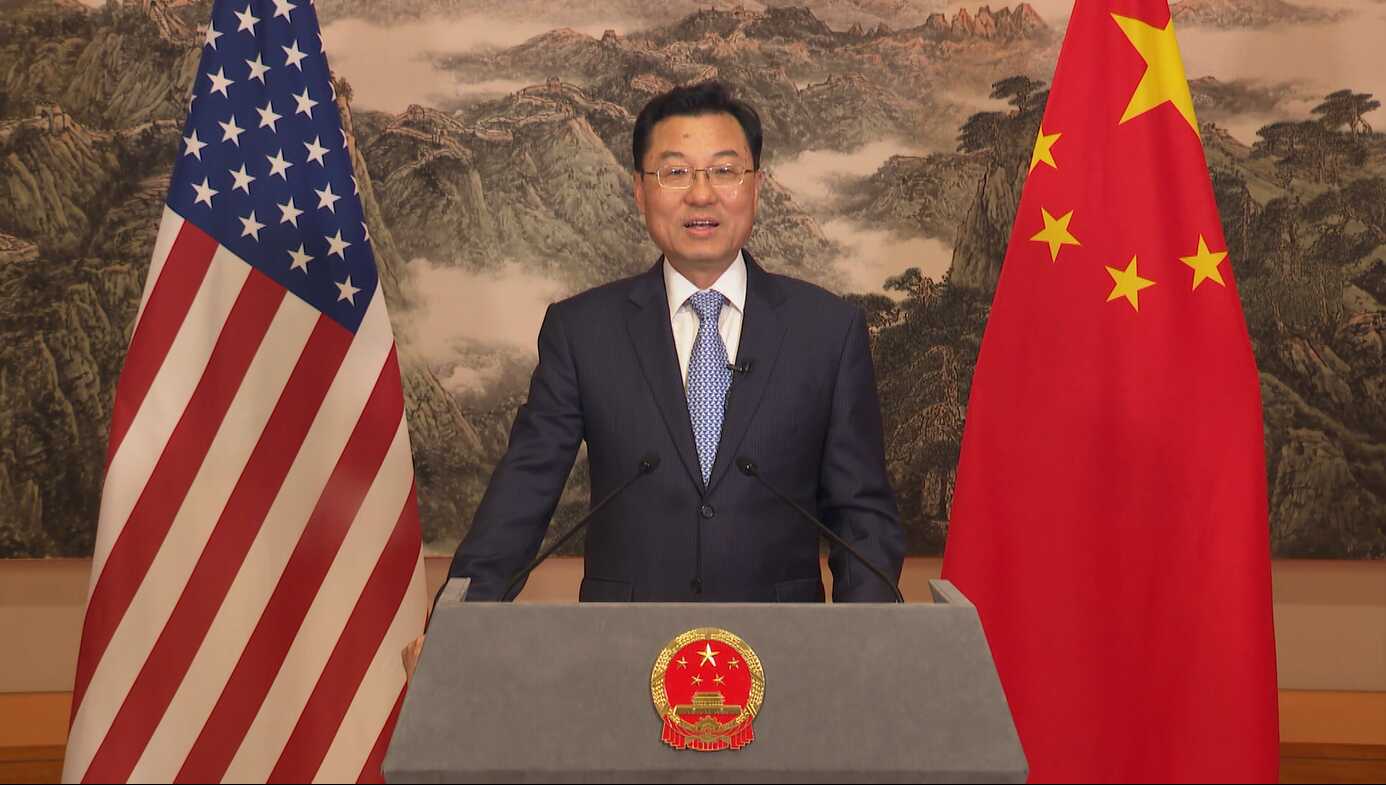by Martin Haffner Associate Editor
In a high-stakes diplomatic address, Beijing’s top envoy to the United States emphasized that the Chinese government is willing to maintain stable ties with its key global partner, but made it clear that Taiwan’s independence ambitions are its number one concern.
During a speech at the Carnegie Endowment for International Peace think tank in Washington D.C., Chinese Ambassador to the US, Qin Gang, stated that while China and the US share many common interests and challenges, there are also areas where their interests diverge. The main issue at stake, he claimed, is the status of Taiwan.
Taiwan has been a contentious issue between China and the US for decades. The United States has historically maintained a policy of strategic ambiguity towards Taiwan, recognizing the island as part of China but also providing military aid and diplomatic support. China, on the other hand, views Taiwan as a breakaway province and sees any move towards independence as a threat to its sovereignty and territorial integrity.
Qin Gang made it clear that Beijing will not tolerate any action that crosses China’s “red lines,” which include Taiwan’s independence, support for separatist groups, and the establishment of diplomatic ties with China’s adversaries. The ambassador warned that any actions that challenge China’s sovereignty would lead to serious consequences, including increased tensions and possible military action.
“We urge the US to avoid actions that cross the red lines, and not to take any steps that could be interpreted as supporting Taiwan’s independence,” Qin stated. “This is not only a matter of China’s internal affairs, but also a test of the US’s commitment to the principles of non-interference and respect for sovereignty.”
Qin’s comments reflect Beijing’s growing concern about the US’s increasing engagement with Taiwan under the Biden administration. In recent years, the US has stepped up military exchanges, sold advanced defensive systems, and allowed senior Taiwanese officials to visit the US.
Taiwanese President Tsai Ing-wen has also used the diplomatic openings to strengthen ties with the US and other Western countries, further fueling concerns in Beijing that she may be secretly seeking independence.
The ambassador’s warnings come at a time when the US-China relationship is under growing strain. The two nations are engaged in a bitter trade war, competing for influence in the Asia-Pacific region, and grappling with issues such as cybersecurity, human rights, and the climate crisis.
Qin called on the US to work with China to manage these differences and find areas of common ground, including cooperation on issues like climate change, non-proliferation, and counter-terrorism.
“We are willing to work with the US to maintain a stable and peaceful relationship, but we will not compromise on our core interests,” Qin stated. “We hope that the US will take a more pragmatic, constructive, and responsible approach to our relationship, and avoid actions that could lead to unnecessary tensions and conflicts.”
While the US and China have long maintained a delicate balance in their relationship, with both sides avoiding direct military confrontation, the risks of escalation are rising. With tensions over Taiwan, the South China Sea, and other issues threatening to boil over, Qin’s warnings serve as a stark reminder that the US and China are walking a tightrope, where any misstep could have far-reaching consequences for global stability.
As the world watches, Beijing’s top envoy has made it clear that Taiwan remains the number one risk to stable ties between the world’s two largest economies. It remains to be seen how the US will respond to this challenge.


